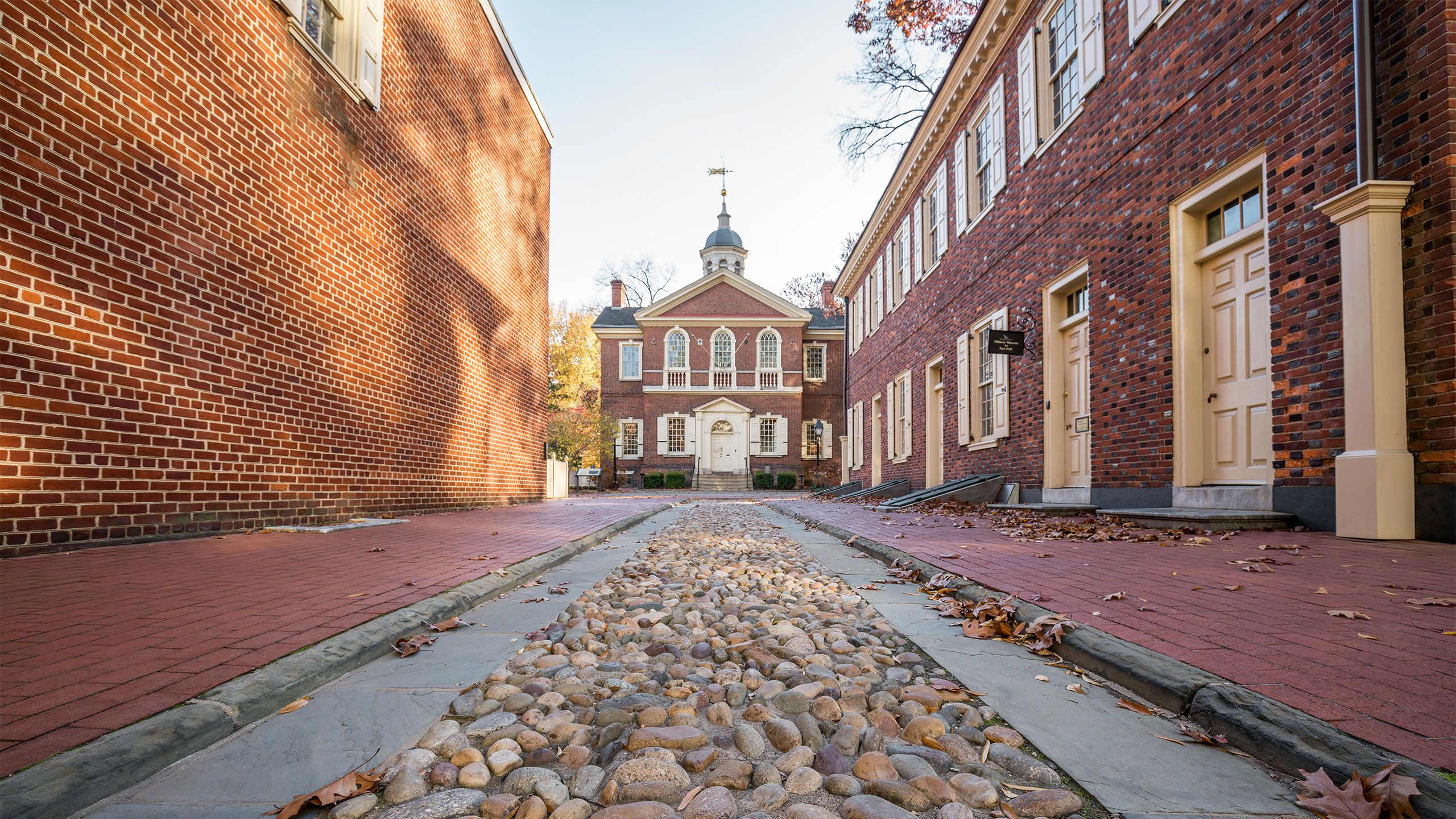History Alumna Keeping the Past Alive in the Present


Emily Winters CCAS’21 GSC’23
Emily Winters CCAS’21 GSC’23
Rutgers–Camden history graduate Emily Winters CCAS’21 GSC’23 stepped quickly into a career in public history. At Carpenters’ Hall in Philadelphia, site of the First Continental Congress in 1774, Winters—the hall’s operations manager and development associate—is collecting not only facts but also artifacts and crafts of the past, helping to continue their relevance.
Modest about her achievement of joining the small but expert team of historians and administrators at Carpenters’ Hall shortly after graduating in May 2023 with a master’s degree in history, Winters is passionate about keeping history alive.
“This is my first job after graduation, and I am thrilled to be at Carpenters’ Hall,” said Winters. “History offers multiple layers of interpretation, and the story being told on this site is important not only as history but also as part of the ongoing story about the growth and development of American culture.”
Although privately owned, Carpenters’ Hall hosts around 400 visitors per day in a highly visible part of Independence Mall, a three-block section of Independence National Historical Park in Philadelphia. The area surrounding Carpenters’ Hall is known as America’s most historic square mile, where visitors can take in some of the most significant sites that tell the story of the American Revolution. Nearby is Independence Hall, where the Declaration of Independence and the United States Constitution were debated and adopted by America’s founding fathers.
The Georgian-style architectural gem was completed in 1774 and is home to the oldest craft guild still existing in America, the Carpenters’ Company of the City and County of Philadelphia. The Carpenters’ Company was modeled on London’s Worshipful Company of Carpenters, a livery company dating back to the 1400s. Members today include professionals representing the architecture, engineering, and building trades. Before its opening as a museum in 1857, Carpenters’ Hall was rented to numerous tenants, including the Library Company of Philadelphia, founded by Benjamin Franklin.
From 1794 to 1797, Carpenters’ Hall was home to the Bank of the United States, organized by the then Secretary of the Treasury Alexander Hamilton. There remains a large fanlight window on the ground floor that Hamilton installed so the sun could flood in. He believed there should be no shadows in banking.

Archival images of Carpenters' Hall
Archival images of Carpenters' Hall

Archival images of Carpenters' Hall
Archival images of Carpenters' Hall

Archival images of Carpenters' Hall
Archival images of Carpenters' Hall



Carpenters’ Hall is celebrating two significant dates this year: the 250th Anniversary of the completion of the Hall and the First Continental Congress, and the 300th Anniversary of the founding of the Carpenters’ Company. September marks the 250th anniversary of when delegates from 12 of Britain’s 13 American colonies met there to discuss and decide upon America’s future under Britain’s growing aggression. In July, Carpenters’ Hall will host a Young People’s Continental Congress for high school students and their teachers, and on weekends in September and October, visitors will be able to see live performances exploring debates from the First Continental Congress.
Winters organized a traditional trade and crafts fair on the last weekend in April and the first three weekends in May. Visitors enjoyed demonstrations of carpentry, brickwork, blacksmithing, and more.
Winters said her Rutgers–Camden education provided her with the support to pursue her career with confidence. Not wanting, at least just yet, to head into academia, she said the history faculty helped her explore archival work in the University’s New Brunswick archives and other such opportunities in the city, and county, of Philadelphia.

“Emily has pursued a career as a professional historian with passion, curiosity, and a radical openness to learning and trying new things that is infectious,” Winters’ mentor, Emily Marker, associate professor of history, said. “She is a creative thinker who has so many talents and interests—we, as a profession, are lucky to have her in the field! It is wonderful that Emily is at such an historic and prominent site, continuing to build out this region’s incredible public history sector. I know I speak for all my colleagues when I say the Department of History is tremendously proud of Emily.”
Learn more about Carpenters’ Hall.

Emily Marker, associate professor of history
Emily Marker, associate professor of history

Design: Douglas Shelton
Images courtesy Emily Winters and Carpenters' Hall
